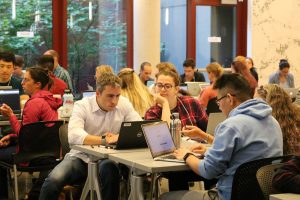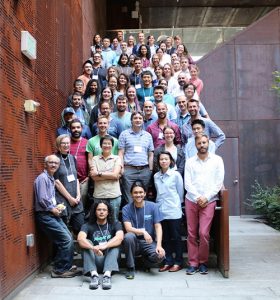Work from Professor Hans Dam’s laboratory (https://marinesciences.uconn.edu/faculty/dam/) led by Ph.D. student, Matthew Sasaki (https://marinesciences.uconn.edu/students/sasaki/) shows that zooplankton vulnerability to warming depends on a complex interplay of population dispersion, local adaptation, and phenotypic plasticity. Thus predicting the fate of the oceanic biota to climate change is a multifaceted issue that requires careful integration of oceanography, ecology, and evolution.
The work (https://onlinelibrary.wiley.com/doi/abs/10.1111/gcb.14811) is published in the prestigious journal Global Change Biology, and is also highlighted in a lay-audience article (https://today.uconn.edu/2019/09/ocean-dweller-ability-respond-warming-waters-location/?utm_source=listserv&utm_medium=email&utm_campaign=daily&utm_content=uconn-today) in the online Magazine, UConn Today.

